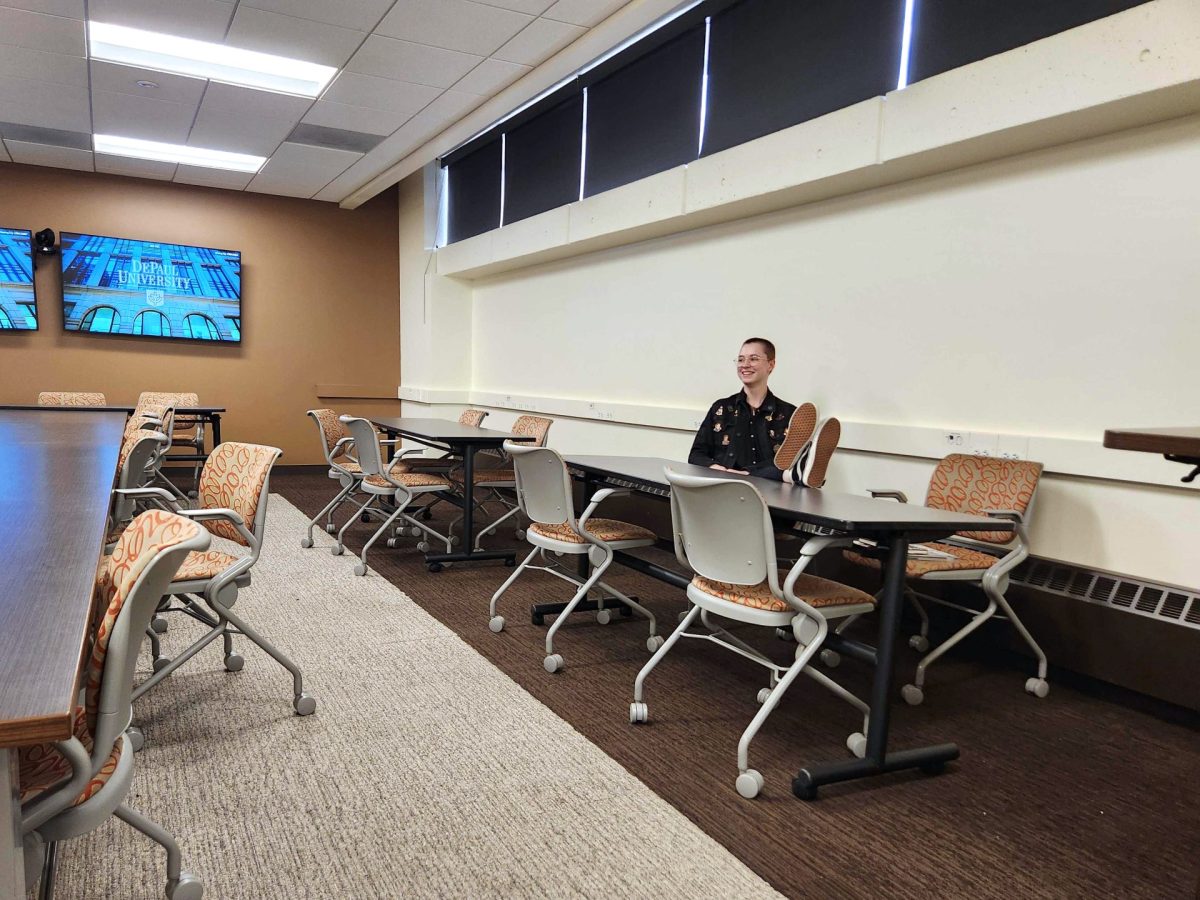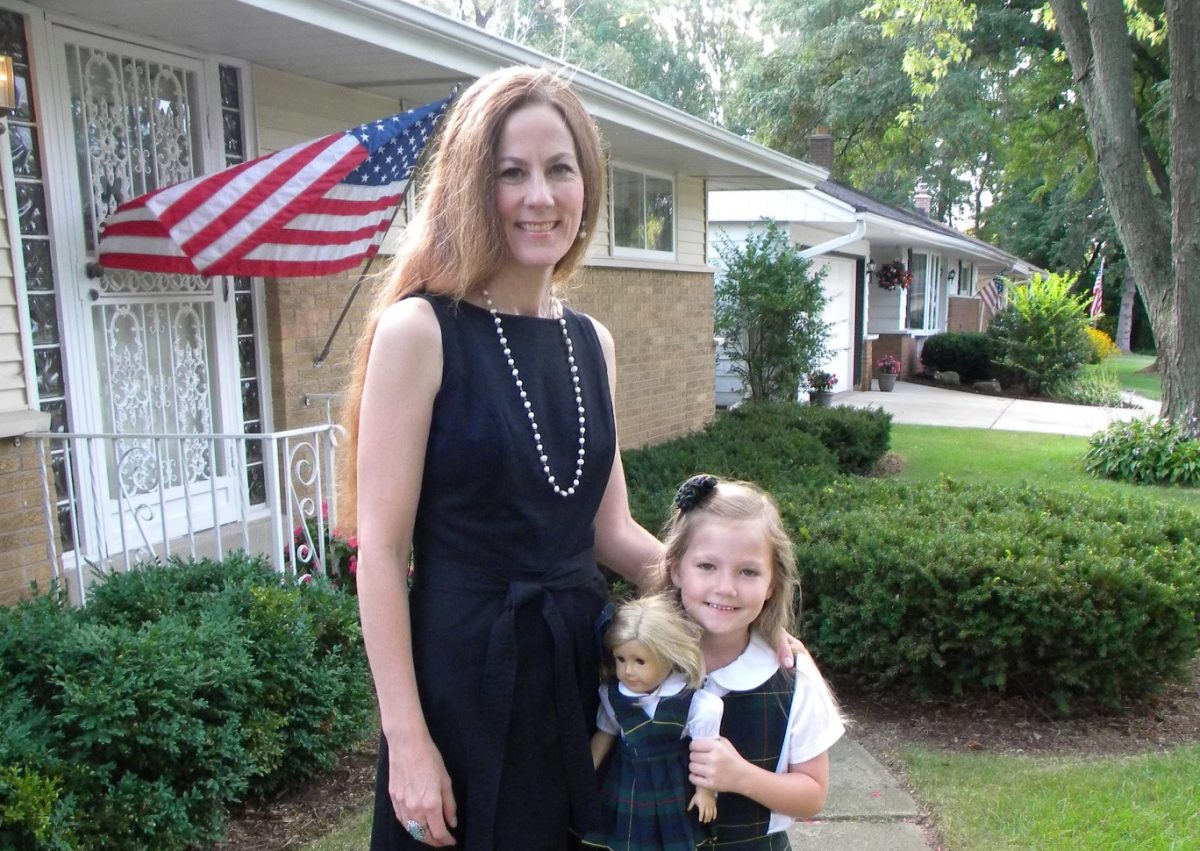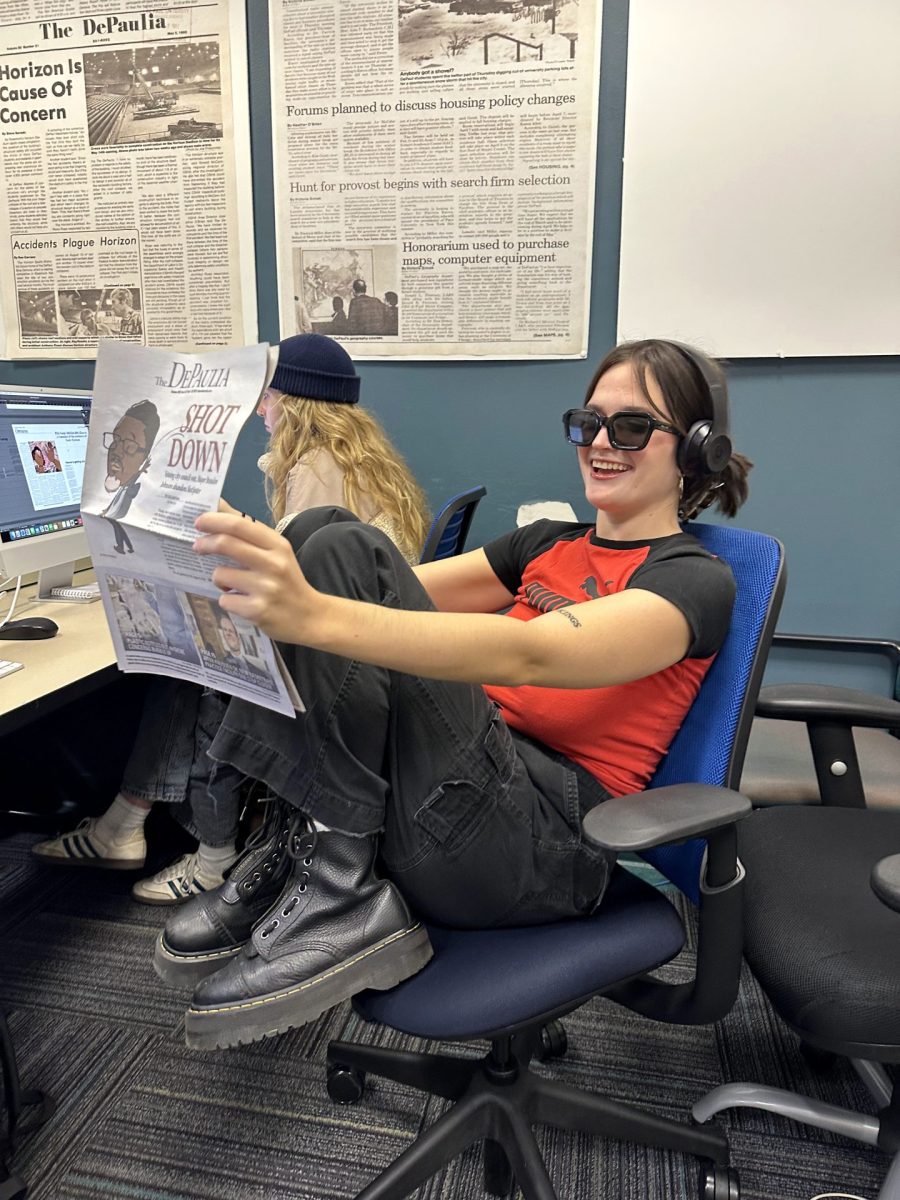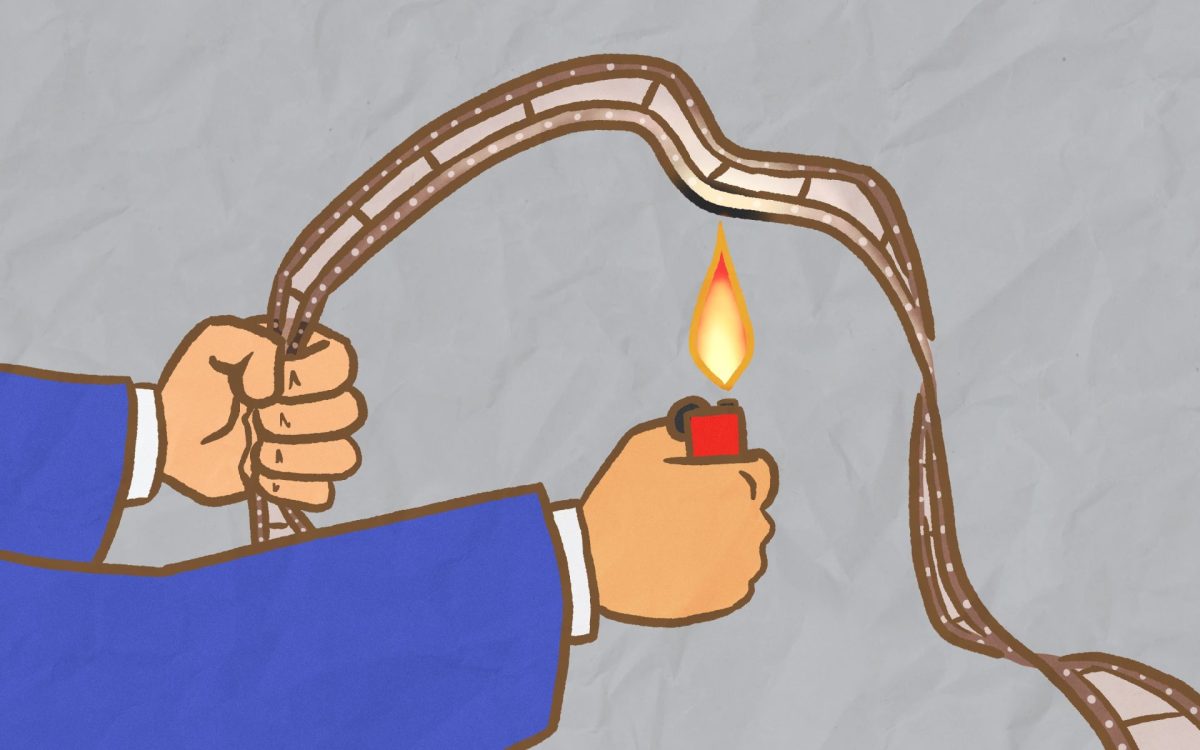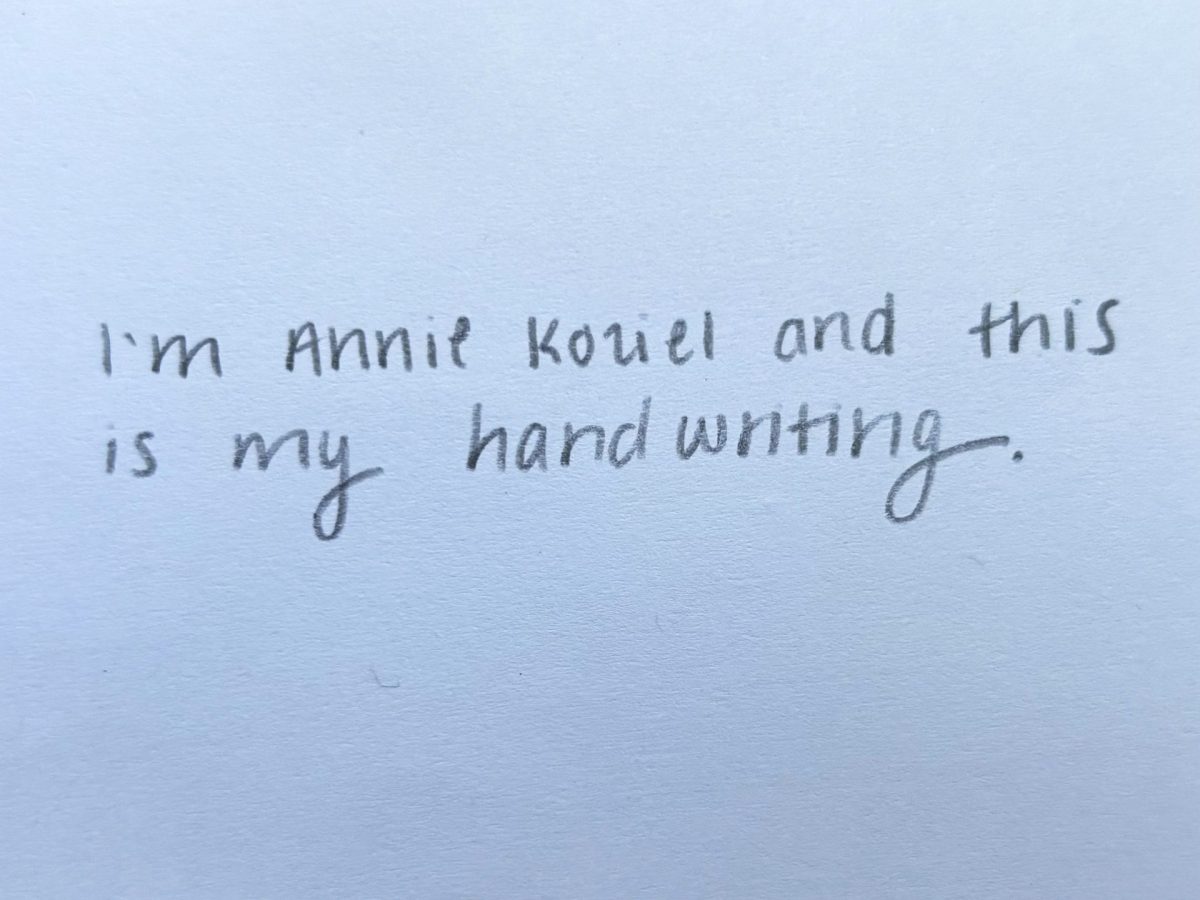In high school, I was the National Honor Society president and spoke in front of the entirety of my school and their families more than once. I’ve spoken in front of city officials along with their peers and partners. And I spend much of my time at my summer job speaking loudly and confidently through a megaphone to complete strangers.
It’s my second quarter at DePaul, and I’m currently in my first public speaking class. I’m about to present my assignment — a simple introduction speech. You’d think it’d be easy, as introduction speeches don’t require much from someone with so much experience like myself.
Yet, all these instances have one dreaded commonality, and it isn’t my nerves. I’m less nervous about the nature of public speaking than my way of going about it. Including, for me, spending less time practicing what I want to say and instead drilling into my memory what I don’t want to say.
This is built off of my fear of overusing filler words — or in linguistic terms, lexical hedges.
I’ve been berated more than I can count on my use of the word “like.” Stemming from mockery and criticism from my stepdad, my fear of speaking began. Or, better yet, my fear of being judged on speaking the way I had always known.
Accompanied by a taunting Valley girl accent and a constant place of blame on “watching too much of the Kardashians,” I was interrupted often by my stepdad. “Like, like, like,” he’d say back to me. I believe he considered it his way of “helping” me — his attempt to make sure I didn’t sound “dumb.” However, this not only made me feel dumber, but instilled panic each time I began to voice my opinions.
I’m a journalism major now and was a writing enthusiast when this taunting began years ago. I always gravitated towards stories and, like most young teens, I love to talk. Sharing knowledge and questioning the world around me went from my entire identity to my biggest fear.
I began to try to quiet down in public while I practiced talking in private. I began listening to myself during conversations with my friends, counting in my head the amount of times I used my fillers. I found myself making only a little progress, “so I was like, totally buggin,” to quote Cher Horowitz in “Clueless.”
The ridicule of my speech patterns reoccurred hundreds of times throughout my academic career; sometimes only being fought by teachers on the way I delivered my question rather than receiving an answer.
I grew up ignoring my use of filler words, laughing it off despite always being a little annoyed for getting attacked for it. I found myself often confused on why I was being judged. It’s not like I had ever spoken in unfamiliar tongues or performed an act out of the ordinary. And never, ever, had I been told to stop saying “uhm.”
I thought it then, and I think it now: Why is speaking like a Kardashian creating a vision of imbecility? More importantly, why is it such a bad thing?
To use filler words isn’t a sign of mindlessness. “Crutch words … are really valuable, and they have arisen to serve a need,” claims Valerie M. Fridland, a linguist and professor at the University of Nevada. “And everything that we use in language comes in because it has a function that maybe some people don’t value…the speakers that bring in those innovations clearly are finding a need for it. And ‘like’ is a perfect example of that.”
Not only is this an issue created for no reason other than a personal bias of some, but it’s built off the inherent idea that the typically associated Valley girl type of speech is unintelligent. Why? Because vocal fry and upspeaking, typically only found in women, makes it wrong.
“Women employ lexical hedges or fillers to avoid appearing too masculine by being forceful and speaking plainly,”said Robin Lakoff, a Harvard graduate and UCLA professor.
“These sentence-types provide a means whereby a speaker can avoid committing himself,” Lakoff said. “The problem is that, by so doing, a speaker may also give the impression of not being really sure of himself, of looking to the addressee for confirmation, even of having no views of his own. This last criticism is, of course, one often leveled at women. One wonders how much of it reflects a use of language that has been imposed on women from their earliest years.”
While this may appear to be equally as sexist in nature, women only avoid this language to escape the labels that come with it such as bossy, cocky and abrasive.
There was a microtrend on TikTok of “emailing like a man,” where women would change their messages from explanation points to periods and phrases from “asking please” to giving strict demands.
While this was light-hearted in nature and poked fun at the way men don’t have to worry about coming off too strong, it led to thinking about the way almost all language is divided between sexes.
A UCLA study found that, contrary to popular belief, men used significantly more filler words than women. The main difference in their results was that women favored the word “like,” and men favored “yeah” and even sometimes “uhm.”
So why are we as a society in the 21st century still debating the validity of filler words when the stereotype is most often aimed directly at women?
There’s a stigma on not just a word, but an entire generation. The lexical hedge “like” doesn’t represent unintelligence, young girls or lack of preparation. In reality, it stands for the years women have had to qualify their ideas and theories by making them sound more relatable and casual. It stands for the teens who were silenced based on the way they spoke despite only mirroring the vernacular of those around them.
This isn’t trivial feminine jargon. This is sexism.
I’ll unfortunately never be able to stop trying to refrain myself from saying “like,” but I will no longer be embarrassed when I do, because it’s, like, not my filler words that define me.



